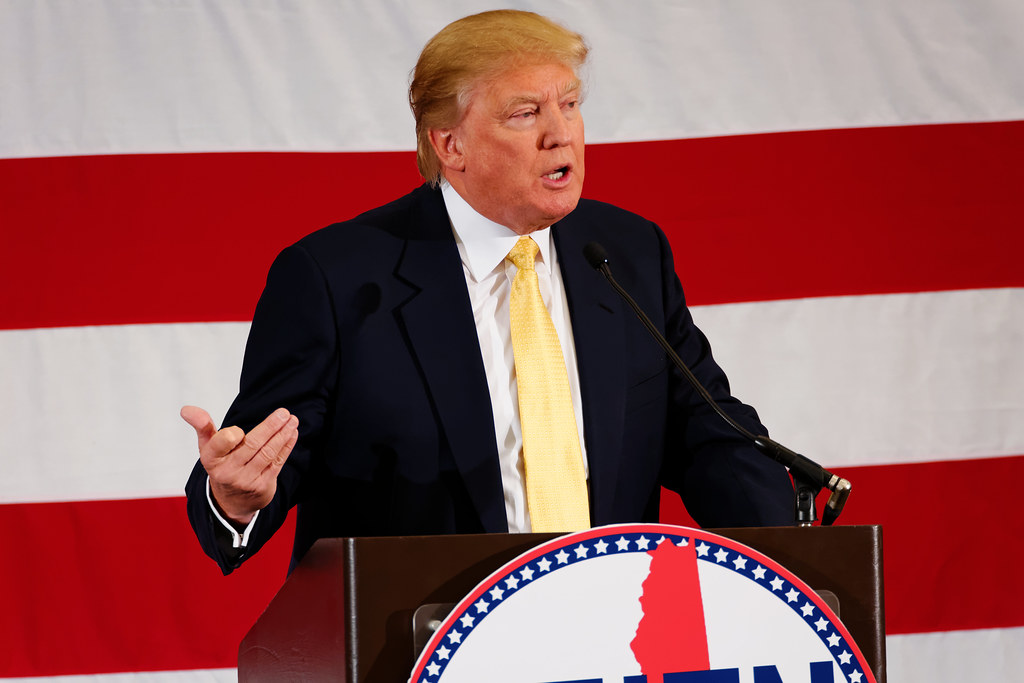Key takeaways
• President Trump confused Cuba with South Africa during a Miami speech
• He warned Democrats would turn America into a “communist Cuba” or “socialist Venezuela”
• He refused to attend the G20 summit in South Africa, calling it “bad”
• His comments sparked laughter and criticism online
Last Wednesday, President Trump gave a speech in Miami that quickly became a viral moment. While addressing the American Business Forum, he aimed to warn voters about a shift toward communism. Instead, he confused Cuba with South Africa. This Trump gaffe led to widespread amusement and sparked debate about his speech habits.
In simple terms, a gaffe is a slip of the tongue. However, this error went beyond a small slip. Trump’s mix-up highlighted both his speaking style and the confusion that can happen when leaders talk off the cuff.
Why the Trump Gaffe Happened
In his Miami address, Trump argued that Democrats want to make America more like communist or socialist countries. He said, “They’re hell-bent on making America into a communist Cuba or socialist Venezuela.” Then he added a puzzling line: “For generations, Miami has been a haven for those fleeing communist tyranny in South Africa.”
This Trump gaffe showed up because he likely meant Cuba instead of South Africa. Yet he kept talking about South Africa. Next, he rambled about South America and said he would not go to the G20 summit in South Africa. He described the country’s leadership as “bad” and insisted South Africa didn’t belong in the G20.
Moreover, Trump claimed that extreme Democrats would force people to flee New York City’s communism and find refuge in Miami. He finished with a jab at New York’s former mayor, slipping in “telltale signs of trouble” in his old hometown.
People noticed the error quickly. Social media filled with jokes and memes. Some news outlets pointed out the mistake. Meanwhile, Trump moved on to other topics without correcting himself.
Reactions to the Trump Gaffe in Miami
Almost immediately, clips of the speech spread online. Viewers paused and replayed the moment he said “South Africa” instead of “Cuba.” Comedians and commentators seized the chance to laugh. Some late-night hosts ran skits mocking the mix-up.
On the other hand, Trump supporters downplayed the slip. They focused on his broader point about socialism and communism. They agreed with his refusal to represent the U.S. in South Africa.
Also, critics argued the gaffe was just the latest example of his loose speaking style. They said it showed a lack of preparation and fact-checking. Meanwhile, political opponents claimed the mix-up risked confusing voters about real global issues.
However, not everyone saw it as a big deal. Some noted that public speaking errors happen often. They reminded people that even skilled speakers make mistakes on stage. Yet, because Trump is a former president, his words carry more weight and get more attention.
What This Trump Gaffe Means for Politics
First, the mistake highlights how quickly a single comment can dominate headlines. Rather than discuss policy details, many news outlets focused on this moment. Therefore, the conversation shifted away from Trump’s main message about socialism.
Second, the gaffe served as a test of party loyalty. Supporters who agreed with his views tended to ignore or forgive the error. Meanwhile, critics used it to question his credibility and public speaking skills.
Third, the incident underlined the power of social media. Within minutes, memes and reaction videos appeared online. They shaped how people remembered the speech more than the speech’s content.
Moreover, on a broader level, it raised questions about political rhetoric. If leaders make repeated mistakes, does it weaken their arguments? Or do listeners filter out errors and focus on the message? This Trump gaffe offers a real-world example to explore these ideas.
Handling Speech Mistakes in the Future
Leaders often rely on prepared scripts and teleprompters. However, unscripted moments can lead to surprises. To avoid gaffes, speakers sometimes use the following methods:
• Practice key points until they feel natural.
• Keep speeches short and focused.
• Pause when unsure, then correct mistakes quickly.
• Have advisors ready to supply facts.
In this case, Trump could have paused and corrected “South Africa” to “Cuba.” Yet he kept going. As a result, his critics had more material to discuss than he intended.
Lessons for Public Speaking
Beyond politics, this episode teaches us about public speaking in general:
• Clarity matters more than perfection.
• Brief remarks leave less room for error.
• A quick correction shows confidence.
• Audience reactions can amplify small mistakes.
Most speakers have faced embarrassing moments. What makes the difference is how they respond. A simple “sorry, I misspoke” can turn a gaffe into a moment of humility.
Conclusion
President Trump’s mix-up of Cuba and South Africa became a defining moment of his Miami speech. Known now as a classic Trump gaffe, it shifted the focus from his warnings about socialism to his own slip-up. Although supporters still backed his broader message, critics cheered his error. The incident shows how a single line can change the story in politics. As social media continues to drive news cycles, speakers must stay sharp and be ready to correct themselves.
Frequently Asked Questions
What exactly did President Trump say in his Miami speech?
He warned that Democrats would turn America into a “communist Cuba or socialist Venezuela” and then mistakenly said Miami was a haven for those fleeing “communist tyranny in South Africa.”
Why did people call it a Trump gaffe?
Because he mixed up Cuba and South Africa, it became a noticeable slip of the tongue that drew jokes and headlines.
Did President Trump correct his mistake?
No, he continued his speech without correcting the mix-up and moved on to discuss other topics.
How did social media react to the speech error?
Users quickly shared clips, made memes, and debated whether the mistake deserved so much attention.
